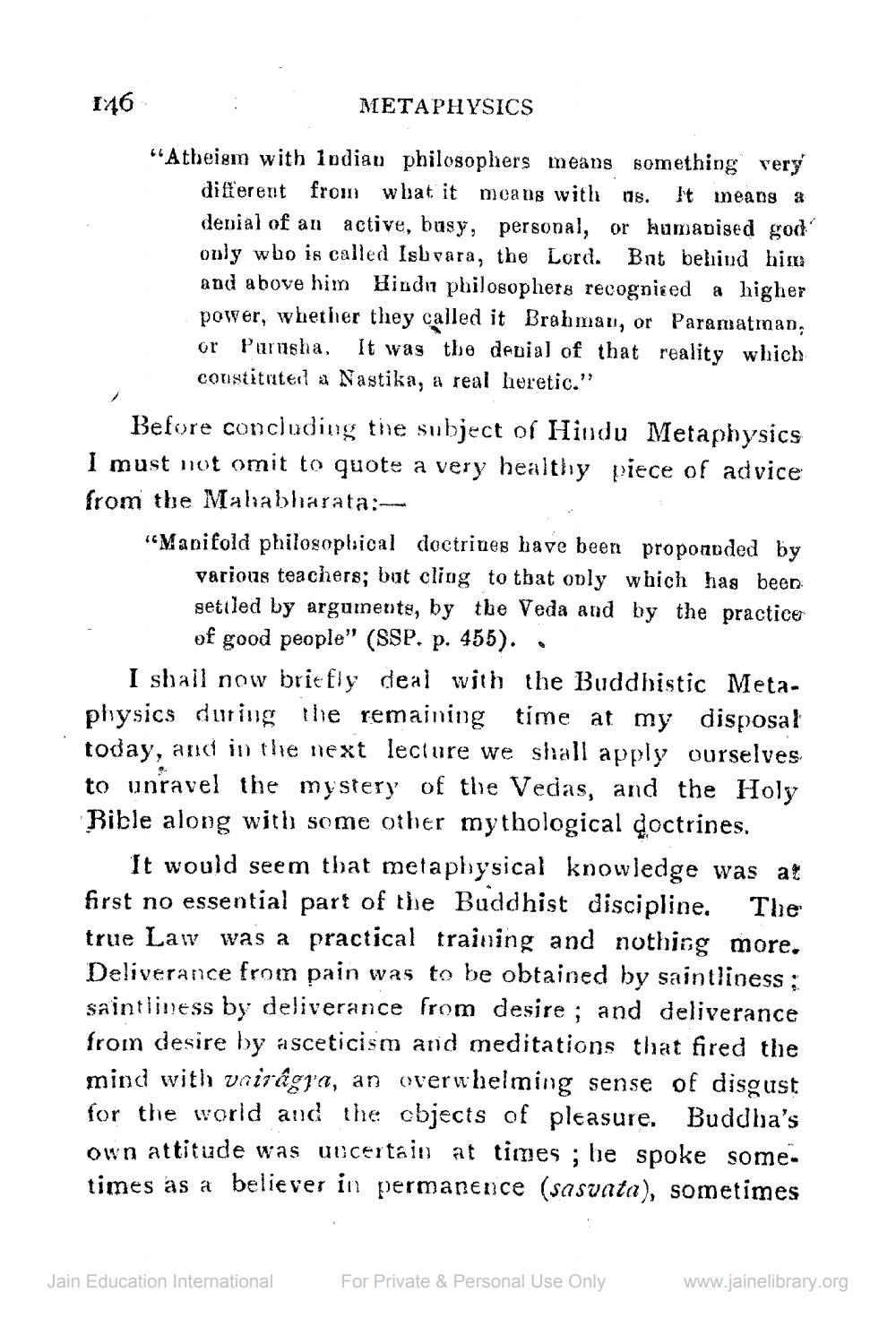________________
146
METAPHYSICS
"Atheism with lodian philosophers means something very
different from what it means with us. It means a denial of an active, busy, personal, or humanised god' only who is called Isbvara, the Lord. But behind him and above him Hindur philosophers recognized a higher power, whether they called it Brahman, or Paramatman, or Purusha. It was the denial of that reality which constituted a Nastika, a real heretic."
Before concluding the subject of Hindu Metaphysics I must not omit to quote a very healthy piece of advice from the Mahabharata:"Manifold philosoplical doctrines have been proponoded by
various teachers; but cling to tbat oply which has been settled by arguments, by the Veda and by the practice
of good people” (SSP. p. 455). . I shall now briefly deal with the Buddhistic Metaphysics during the remaining time at my disposal today, and in the next lecture we shall apply ourselves to unravel the mystery of the Vedas, and the Holy Bible along with some other mythological doctrines.
It would seem that metaphysical knowledge was at first no essential part of the Buddhist discipline, The true Law was a practical training and nothing more. Deliverance from pain was to be obtained by saintliness; saintliness by deliverance from desire ; and deliverance from desire by asceticism and meditations that fired the mind with vairágya, an overwhelming sense of disgust for the world and the cbjects of pleasure. Buddha's own attitude was qucertain at times ; be spoke sometimes as a believer in permanence (sasvata), sometimes
Jain Education International
For Private & Personal Use Only
www.jainelibrary.org




